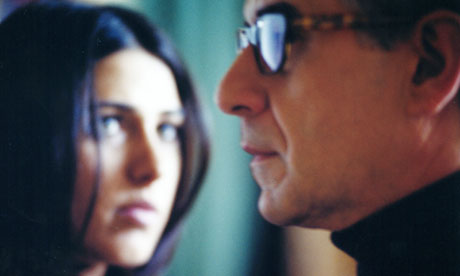
There is one slow-motion shot halfway through The Consequences of Love that I always have to rewind. It's of Titta di Girolamo, the film's lead, sitting on a bed. At first, you think he's about to turn in. Then you realise that in fact he's taking heroin. Seconds later, we finally clock he's now no longer on the bed: he's crashing to the floor. Things are not what they seem.
But in Paolo Sorrentino's Consequences, things are never what they seem. Take Titta. When we first meet him, he seems the epitome of boredom: a businessman marooned in a Swiss hotel for the past eight years. Every day, he puts on a suit, and mooches gloomily around the hotel lobby. We don't quite know why he's there, but he seems respectable enough – right up until the moment a cleaner breaks his television by mistake, and out pops a pistol. It's only now that we learn that Titta is no businessman, but in fact a mafia stooge. To atone for a bank deal gone wrong, Titta must deliver a suitcase of laundered mafia money to a Swiss bank – every week for the rest of his life.
Yet the biggest revelation concerns not Titta's career, but his character. For the opening scenes, we assume he is at best shy, and at worst vindictively rude. He nods at the hotel manager, and occasionally plays cards with two of the hotel's other long-term residents – but he seems to relish ignoring most other people, not least Sofia, the beautiful waitress in the bar. But once again, appearances are deceptive. It turns out Titta is secretly in love with Sofia, and the plot of the film is largely concerned with what happens when he acts on those feelings.
As I've written in an earlier post, I love this film because for some reason I've always identified with Titta's loneliness. Emotion aside, though, it's worth seeing for its aesthetic genius alone: think classy, angular compositions, and a eerily complex soundscape that flits imperceptibly between a cool, electropop soundtrack – Terranova, Mogwai etc – and an acutely well-observed set of sound effects. A dialling tone segues into a Lali Puna song; the bounce of a tennis ball becomes Titta's heavy breathing. What we think is one sound actually turns out to be another. Things, as ever, are not what they seem.

